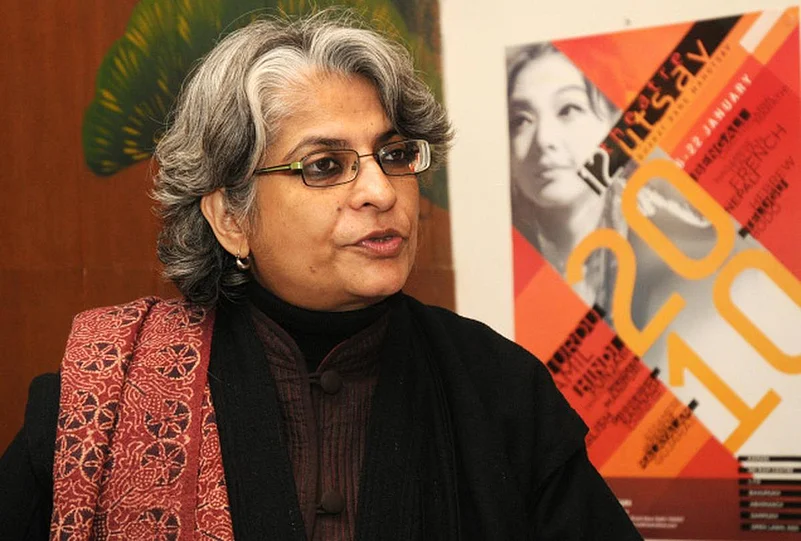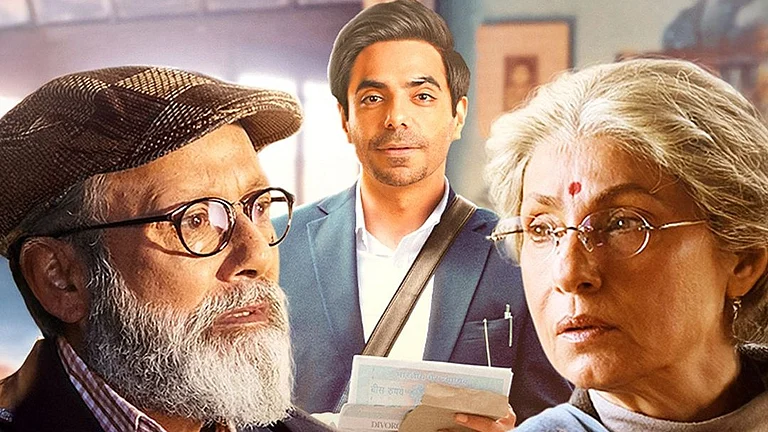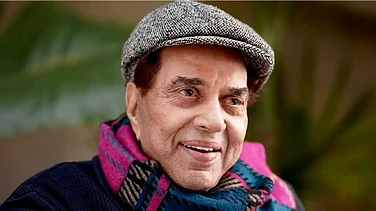“People have to earn a living, even actors. And what is wrong if National School of Drama (NSD) pass-outs go to Mumbai looking for work? In a country that has very few theatre repertories, what choice do they have?” she asked.
The Sangeet Natak Akademi Award-winning director Anuradha Kapur, who taught at NSD, Delhi for over three decades and was its Director for six years (2007–2013) stresses that this "exodus" started in the 70s when Naseeruddin Shah and Om Puri went to Film & Television Institute of India (FTII) in Pune after finishing drama school. “In a way, it is not showing disrespect to either theatre or cinema. A trained actor can easily adapt to different mediums over time,” asserted this Phd holder in Theatre from Leeds University, England.
Even while most digital platforms have started following an algorithm where crime thrillers rule, Kapur sees a silver lining in terms of stories and their treatment. “Directors are willing to experiment and many are giving enough space to trained actors to showcase their potential. And this is very exciting for theatre school pass-outs. No wonder you see many of them doing phenomenal in different series being streamed,” she told IANS. The theatre director completely disagreed with those who feel that drama school pass-outs are abandoning theatre for films and OTTs. “Several of them are working in both mediums, and not just the established ones but fresh pass-outs too. It is a tradition that started in England, where actors trained in theatre would not completely abandon the stage.”
A major thrust area during her term as the Director was to ensure that students from across the country, even those whose mother language was not Hindi, should enroll. “I am content that when I was heading it, several students from the northeast including Assam, Manipur, Arunachal Pradesh, Meghalaya and Nagaland joined the School. What was important for me was the fact that across languages and cultures, students were getting together and acquainting each other about their respective cultures, and also learning from one another,” smiled Kapur who has taught at several institutions in India and abroad, and was a Fellow at the Freie Universitat, Berlin in 2016–2017. Kapur also executed the Extension Programme, the brainchild of former NSD Director (late) B. V. Karanth. “He always wanted the School to go to the student who cannot reach NSD. I focussed on the northeast, which also led to the starting of the second chapter of the NSD.”
While the NSD at Bangalore had taken shape during former Director Kirti Jain’s tenure, it was Kapur who started it along with those at Tripura and Sikkim, not to mention the Theatre in Education (TIE) initiative. Adding that there is an urgent need to have more theatre repertories in the country, attached with drama schools like NSD in Delhi and Sikkim, she observed: “Even a year or two of work at the repertory helps the students a lot.” Asserting that governments need to come forward to set up repertories in different parts of the country, this former NSD Director opined: “We have an extremely rich tradition of diverse theatre forms -- while there has been commercial theatre in several languages -- Assamese (Assam Mobile Theatre), Maharashtra, Jatra in Bengal, or, let us say, what's called Company and Commercial Theatre in Malayalam. It is important that they carry on, and for that financial help is indispensable.”
Adding that the opportunity of doing theatre which may not necessarily be a commercial success has been supported by the state in various countries, she elaborated that Germany is a great example. "One witnesses some of the greatest work in theatre there, owing to state support. But sadly, in India, we have been noticing that successive governments have been increasingly pulling back on grants for arts and culture,” she lamented. In fact, Kapur has worked extensively in collaboration with visual and video artists and filmmakers including Arpita Singh, Bhupen Khakhar, Madhusree Dutta, Nalini Malani, Nilima Sheikh and Vivan Sundaram. She is one of the founding members of 'Vivadi', a working group of painters, musicians, writers and theatre practitioners.
Even as there is much talk about corporate sponsorship through CSR for theatre, it seldom reaches people doing serious work. “There are exceptions, of course, but majorly corporate houses also want "their money's worth." However, they need to realise that their brand value is bound to go up if they associate with serious work,” said the director who is presently a visiting Professor at the School of Culture and Creative Expressions, Ambedkar University Delhi.
Currently meeting several writing deadlines, there are many projects she has in mind including one on the role of the prompter in theatre. Also, a Trustee of the Sher-Gil Sundaram Arts Foundation, she wants to make the Ivy Lodge in Kasauli a place alive for performance, not just for finished ones, but to have it work as a residency. “I want it to be a space for doing a kind of pedagogy programme where young people come and spend two-three weeks. It could be theatre or some liberal arts initiatives. The aim is to make it a future-looking space,” she concluded.






















